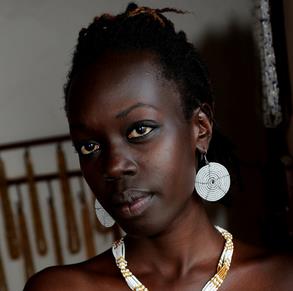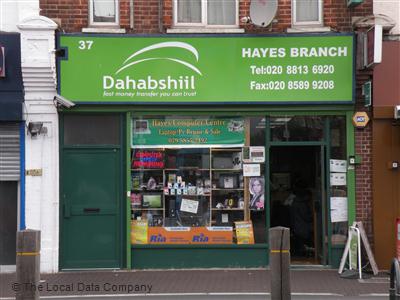The Truth about the Lies: Women, violence and the AU Commission of Inquiry Report – By Anyieth D’Awol

 “˜Women are the pride of our families and societies,’ we were told. “˜Many cows will be paid for you’. It is said with pride – the way it has always been and the way it must be.
“˜Women are the pride of our families and societies,’ we were told. “˜Many cows will be paid for you’. It is said with pride – the way it has always been and the way it must be.
The intention is for the cultural systems to link families and communities together and ensure a girl is married into a family that will value her as much hers. It is said that the culture is unchangeable and where it has been transformed, it is blamed on war but still, it must be respected.
Rape, sexual harassment, forced and early marriage and exploitation have become so common that the things we have been told about how special we are must be a lie. The reality is that today a girl is monetized before marriage and treated like property after it. In times of conflict, being considered precious by our tribes only makes us targets, a means to inflict pain on the perceived other.
In the end, it is everyone who loses. Men, women and the children we bear, our cultures and the country we all share.
As a human rights activist in South Sudan since 2005, I have heard countless accounts of inter-community violence, human loss and sexual violence. Cruelty has become the accepted culture and the only remedies are tolerance or violence. They were called remnants of war and its effects on culture and time will heal all.
Of course, the issues never faded and time did not heal. Undeniably, it is ignoring the violence that is costing South Sudan its future, the regional its stability, and the world its newest nation.
During the second war (1983-2005) between South Sudanese and the government of Sudan, women were kept from the frontlines. Instead, it was decreed that they were to have children to replace the millions being killed as a result of the war.
This created vulnerabilities for women, as the duty to procreate was now part of the war efforts. Women were killed and many suffered rape at the hands of both enemies and their own communities.
This mentality carried on after the war. Throughout the relative peace between 2005 and 2013, sexual violence only increased in frequency and intensity.
“I want to go home“ said Sarah, a 13-year old girl, as she stared through the bushes and trees towards her father’s home. Sarah’s neighbour had just raped her when she got home from school while her mother and father were out.
After hearing her ordeal, I walked over to talk to her mother. “This is how it is and how it was for me too.” She said, crying helplessly. When her father had arrived home, he beat Sarah for being raped and dragged her to the neighbour’s house. He demanded a settlement for her dowry. Sarah’s feelings and her justice were not a consideration.
This was one of the first sexual violence cases I saw in South Sudan in early 2006. In many of our cultures, raping a girl would be considered a legitimate way to marry. For Sarah, that was the start of her marriage and the rest of her life.
I do not know what became of her, how many children she has, but hers is the story of many women. Cultures can become depraved when the central values are lost.
Women, culturally held dear, are degraded, in order to uphold the same culture. The humiliation results in women reconciling to their fate, running away or killing themselves – the way it has always been, the way it must be.
This is the same logic applied to the crisis facing the nation. Those who created the conditions and executed the war, guided by personal needs and grievances rather than the values of leadership, are the ones that can resolve it, exclusively.
When the political disputes between the President and the former Vice President erupted on 15 December 2013, the violence between the military quickly assumed ethnic overtones and spread across the country within days. Targeted killing of Nuer citizens in Juba started a wave of revenge killings of citizens in Bor, Malakal, Bentiu and elsewhere.
This current conflict, described as senseless even by the warring sides, does not spare women or girls – they have been specifically targeted. Killings and rapes are repaid with killings and rapes. Sexual violence has been inflicted on a scale unseen even by the brutal standards of previous wars.
Victims range in age from young girls to elderly women, some in their 80s. Many stories tell of women given the option between rape and death. Women who refused to be raped were penetrated with sticks, guns and other objects and bled to death. Those who chose rape were gang raped, many not surviving the brutality. Pregnant women had their babies ripped out of them.
Knowledge that justice will never come motivates the revenge killings. Perpetrators of violence are acting to destroy everything, even our elders and our babies, our history and our future. The brutality inflicted ensures the pain is deeper, lasts longer and is never forgotten.
The question is: are the issues at the root of this conflict even being addressed?
The answer is no. The culture of violence and abuse is brushed off as a by-product of bigger problems, rather than the problem. Indeed, fear and threat of violence is what makes the powerful, powerful.
The need and urgency to address the violence is treated as inopportune and the argument is that accountability will cause more violence. We are persuaded that accountability is less important than peace. But, what is peace when there is so much violence? And what is a peace that does not address all this violence?
From my experience, time alone cannot heal all, especially that which is repeated. During the latter part of 2014, many of us held onto the hope that the African Union Commission of Inquiry on South Sudan report would be released. It would reveal the full scale of what our people have suffered over the last year and name those responsible.
Signed agreements between the warring parties promised an inclusive process to address the root causes, ensure justice and accountability and guarantee those responsible would be excluded from any future government. In late January 2015, Africa’s leaders decided that the report was untimely because it might derail a peace agreement and postponed the consideration and release of the AUCISS report.
The March 5 deadline for the warring parties to sign the peace deal came and went and we do not have peace, nor reasonable prospects for it. The violence simply continues. African leaders took a huge gamble that the parties would sign a peace deal.
It is questionable whether either party has the will or the power to bring peace to South Sudan, put it on the path to prosperity and reconcile the people. Signing a peace deal for fear of the truth will not bring us the peace we need. Rather, confronting the truth will be the first step towards forging the peace we must have if this nation is to emerge from this dark period.
On March 5, a draft of the AUCISS was leaked. The African Union’s response, on March 16, stated “˜categorically that the so-called “˜report’ … is not that of the Commission of Inquiry.’ The claim of ignorance is degrading to those who died, those that continue to suffer and those who spoke to the Commission.
It is clear the document is unfinished but people have been quoted, others named and incidents described. In light of its content and what we already know, the decision to indefinitely postpone the consideration and release of the report is shocking. But the problems we face are clear and the opportunities to rectify them exist.
With honesty and a chance of a future that is different from what we have had, we may start to live by the values that actually matter and end the violence. Nearly four years ago, the people of South Sudan celebrated independence peacefully and united with extraordinary joy. That is the nation we want.
The prospect of a real future has been our most tested route to silencing the guns. The final and official AUCISS report should be released if the intention is to end the war and the culture of violence. From that point, we may find our path to a more hopeful future.
Anyieth D’Awol is a human rights activist and Founder and Director of the ROOTS Project, a civil society organization based in Juba, South Sudan






What is sad is that women and girls suffer abuse even from their fathers, uncles, brothers, not just sexual but mostly the violation of their human rights and human dignity. And most times mothers can’t even help because they are abused themselves by men who swore to love and protect them. This is a sick sad world.